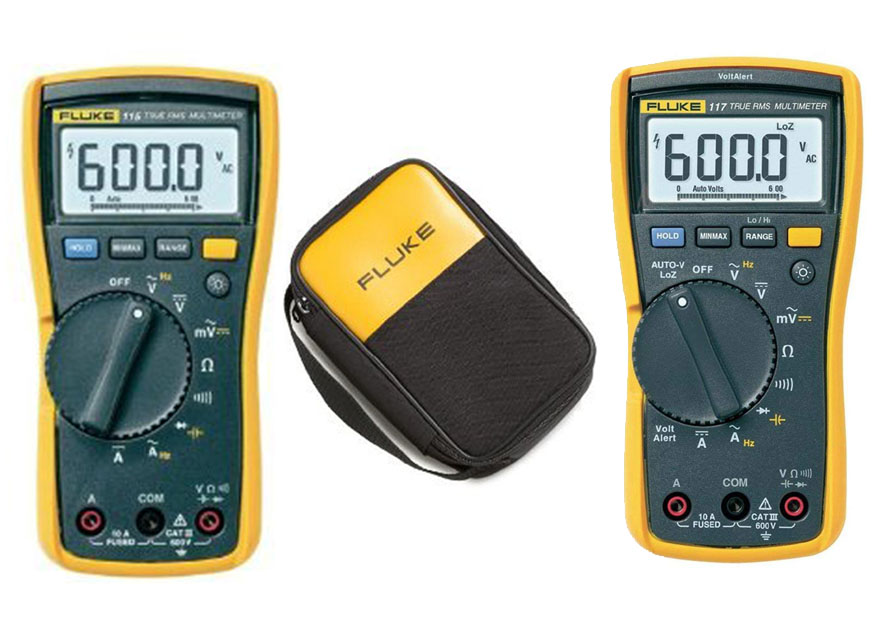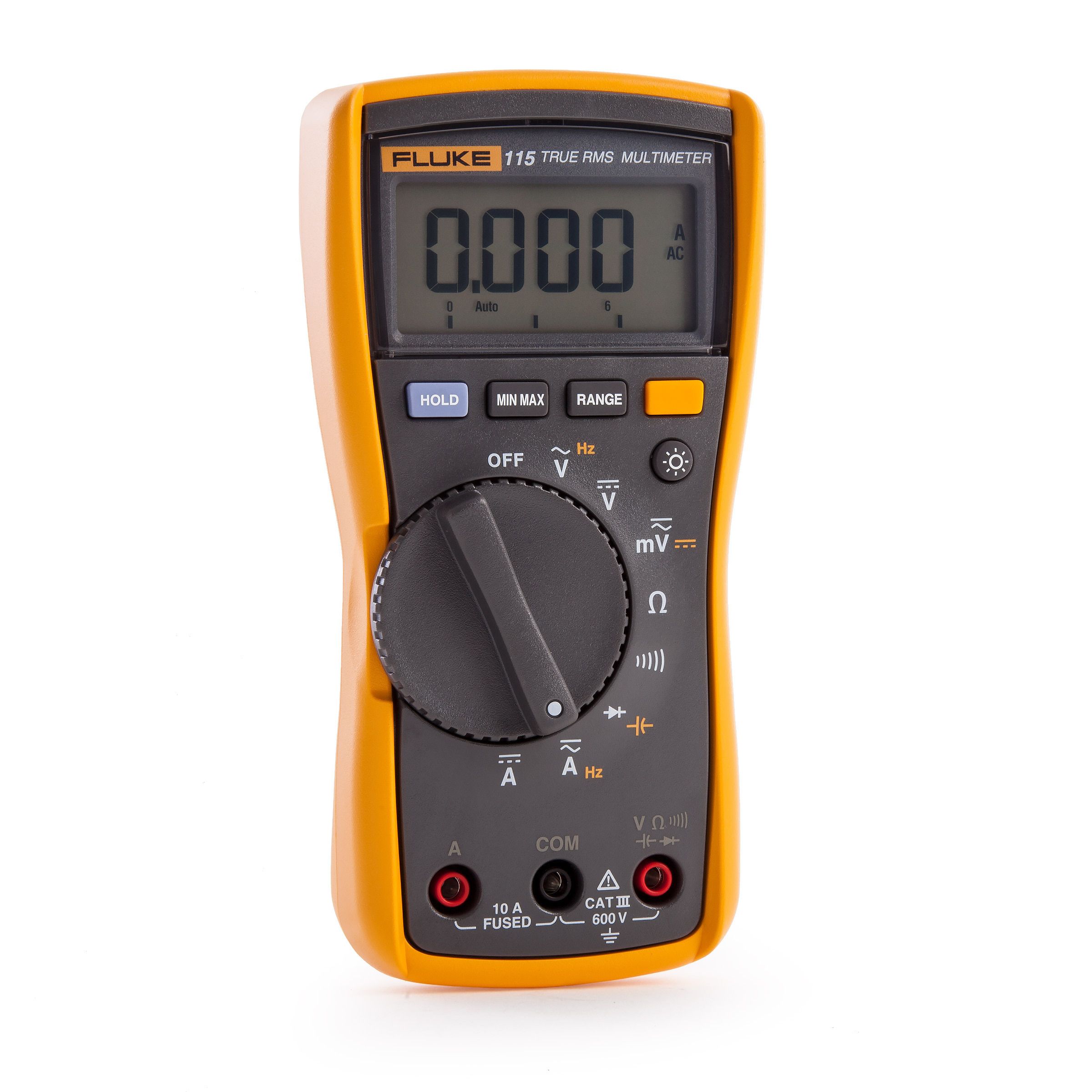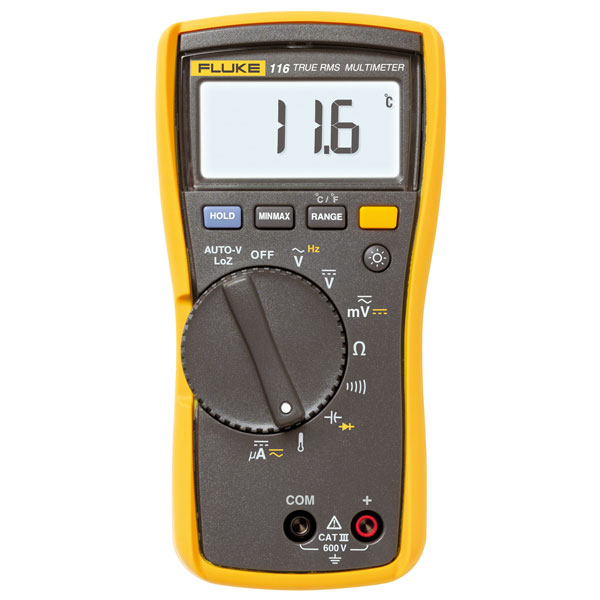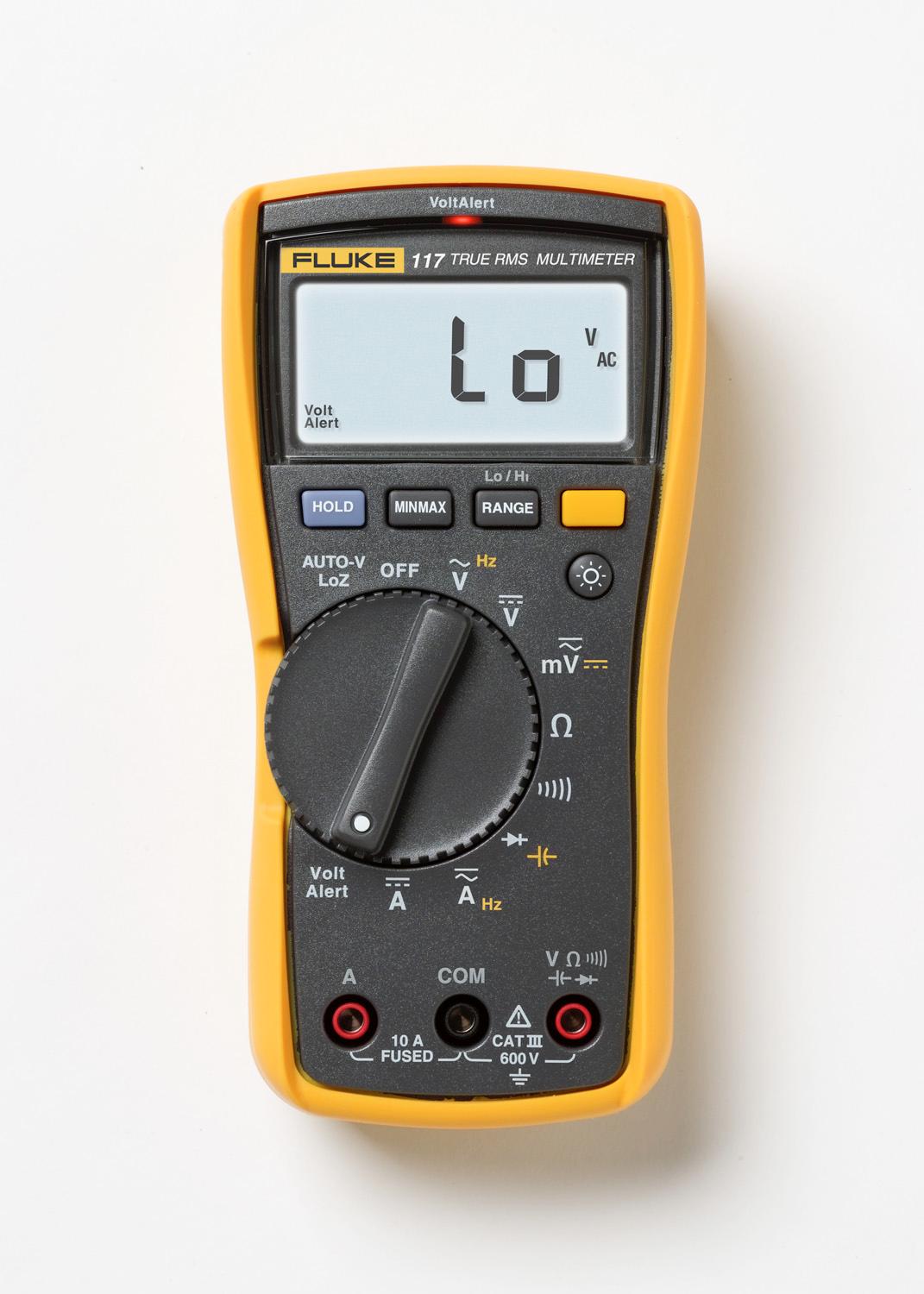When you’re first picking out a Fluke multimeter, there seems to be a multitude of options available to the consumer. If you’re not familiar with exactly what you need all of these choices can be a bit disconcerting. The Fluke 110 series of meters has a large variation in the different sorts of things available, there’s really one to meet almost anyone’s needs.
We’re here to take some of the confusion out of the process, and help you to pick the one that will help you do exactly what you need done.
In a hurry?
See the best deals on the top pick of the 110 series here.
Fluke 114 - Just The Basics
The Fluke 114 is the simplest model available of the four we’re going to take a look at. In essence it’s just a regular high-quality multimeter. It’s the exact one you want for any kind of around the house work, or even lighter troubleshooting in the field.
It’s a great multimeter for the layman as opposed to the professional, while still boasting the durability you’d expect from this high-end brand.
It also boasts LoZ, or ghost voltage, capabilities but it’s primary use is in the realm of “is voltage present?” type of situations.
While it’s respectably high-quality it lacks a lot of the features which make Fluke stand out so far from the competition. It lacks readings for things like capacitance, amperage, and frequency which many take for granted with the higher-end multimeters.
That said, it’s a respectable tool in its own right, and perfectly priced for someone who just needs to test outlets around the house or work with small voltage circuits provided they’re simple. If you’re looking for something which does just the basics, this is the one you need, but for any kind of serious work you’d probably be best off passing it over in favor of the more advanced models available.
Fluke 115 - The Best For Field Service
If you’re looking for something a bit more advanced, primarily to work on commercial or industrial equipment without breaking the bank, the Fluke 115 delivers.
It boasts most of the more advanced capabilities of the higher end models of multimeter and only costs a little bit more than the 114.
The Fluke 115 can measure pretty much anything you’ll need when it comes to electrical testing.
This includes amperage, capacitance, and diode testing, so you’ll know you’re in good hands with it. It’s best suited for those who are working on larger pieces of machinery or electrical equipment.
That said, it does lack the ability to detect ghost voltage, so you’ll want to make sure that the system you’re using it on has a solid electrical connection. This one is strictly for detecting problems after the electrical input.
More advanced hobbyists may also find quite a bit of use with this handy meter, since you’ll be able to read pretty much anything going on in the circuit quite easily. If you fall into the category where you may need to detect advanced electrical problems within a system itself, take a closer look at the Fluke 115 and you’re sure not to be disappointed.
Fluke 116 - The HVAC Tech's New Best Friend
The Fluke 116 boasts all of the capabilities you’d expect from a high-end multimeter, it can detect most electrical problems easily and is built into the high-quality Fluke 110 frame. Even better, for the dedicated HVAC/R technician, it comes with a built-in temperature gauge which will make your job a lot easier.
You’ll also be able to pick up ghost voltage problems with this handy multimeter, making it perfect for those tense situations that can arise when working on the highly technical systems which make for modern central air control and refrigeration.
It’s a bit expensive for the hobbyist however, and the specialized nature of it means that it really is primarily suited for those technicians working with air conditioning and refrigeration systems. It’s suitable for electricians, but as we’ll see in a moment there’s actually a special design which is better suited for them. It might make a passable substitute for those who can’t afford the extra few dollars however.
Any HVAC/R technician will tell you that there’s a multitude of electrical problems that can afflict the systems, even if the system itself is completely functioning. As such, a multimeter is an absolutely invaluable tool in this line of work, and the fact that Fluke produces a meter with the added temperature gauge makes it a potent tool in the arsenal of those in this specialized trade.
Fluke 117 - For The Master Electrician
For those who work primarily before the box, Fluke produces a fantastic meter which is amazingly well suited to their needs. In the electrician’s trade a multimeter is absolutely essential, and the added functionality of the Fluke 117 makes it a welcome addition to any electrician’s tool box.
In addition to the features you’d expect to find in a high-quality multimeter, like the ability to read amperage and capacitance, the Fluke 117 has a unique feature which can save a lot of time for the electrician. It can wirelessly detect voltage, so you can tell if a line is live without touching it.
If you’re looking to find an electrician’s multimeter for under two hundred dollars though, this one is absolutely the best purchase you can make. Fluke does produce some higher-end meters that have more features and will outperform the 117, but not everyone has the money to sink into one of those high-end meters.
While it’s true that most technicians who work with high-voltage carry a tool designed to do this, having it within your multimeter is not just time-saving, it can also be life-saving. This one really is the top of the line for the Fluke 110 series.
Fluke 110 Series Comparison Chart
Feature | Fluke 114 | Fluke 115 | Fluke 116 | Fluke 117 |
|---|---|---|---|---|
Usage | Basic Electrical | Field Service | HVAC | Electrician |
AC/DC Amps | No | Yes | Yes - uA | Yes |
Frequency | No | Yes | Yes | Yes |
Diode Testing | No | Yes | Yes | Yes |
Temperature | No | No | Yes | No |
Capacitance | No | Yes | Yes | Yes |
Ghost Voltage Detection | Yes | No | Yes | Yes |
Non-Contact Voltage Detect | No | No | No | Yes |
Price |
Summary
As you can see, the Fluke 110 series is quite diverse despite the superficial similarities surrounding these great meters - which is noticeable when comparing the amount of symbols and features on the individual dials. If you make a careful choice, you’re sure to be able to find the correct one to suit your needs.
We would recommend the following: for the amateur or around the home, the Fluke 114 is exactly what you need. If you find yourself working on commercial or industrial equipment and needing to troubleshoot after the box, the Fluke 115 offers the best quality versus price ratio you’re like to be able to find. For the HVAC/R technician, the Fluke 116 is an obvious choice since it can read temperatures, and for the dedicated electrician accept nothing less than the 117 model since the wireless voltage reading can be absolutely essential in that field.
Make your choice wisely, and you’ll have a tool that will last for years to come and make your job a lot easier.




